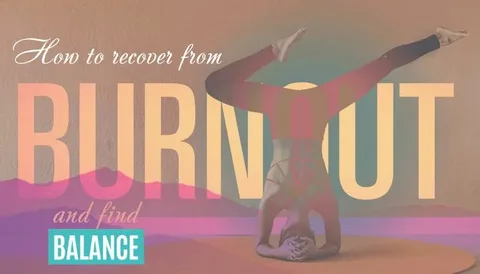Burnout doesn’t happen overnight. It’s the result of months or years of pushing through, ignoring your body’s signals, and putting everything else before your own well-being. If you’re reading this feeling exhausted, overwhelmed, and running on fumes, you’re not alone—and more importantly, there’s a way back.
The path from burnout to balance isn’t about adding more to your plate. It’s about fundamentally changing how you approach your health and energy. Natural approaches work because they address the root causes rather than just temporarily boosting you so you can keep pushing.
Recognizing True Burnout
Burnout is more than just being tired. It’s a state of emotional, physical, and mental exhaustion caused by prolonged stress. You might feel cynical, detached from things you used to care about, or like nothing you do makes a difference.
Physical symptoms include constant fatigue, frequent illness, headaches, muscle pain, and changes in appetite or sleep. Your body is literally telling you it can’t keep going at this pace. Vitamin and mineral IV therapy, IV drips, and hydration therapy can provide immediate nutritional support while you work on longer-term lifestyle changes to restore your energy and balance.
The first step to recovery is acknowledging where you are. You’re not weak or failing—your body is doing exactly what it’s supposed to do when pushed beyond its limits.
Rebuilding Your Foundation
Recovery from burnout requires a different approach than what got you here. You can’t hustle your way out of exhaustion. Instead, you need to rebuild slowly and intentionally.
Start with non-negotiable rest. Not just sleep (though that’s crucial), but actual downtime where you do nothing productive. Read for pleasure, sit outside, stare at the wall if you need to. Your nervous system needs to remember what safety and calm feel like.
According to National Institute of Mental Health guidance on self-care, regular rest periods throughout your day prevent stress accumulation and support mental health recovery. Schedule them like any other important appointment.
Nourishing Your Depleted System
Burnout depletes your body’s resources—vitamins, minerals, hormones, neurotransmitters. You can’t think your way out of a biochemical problem. You need to physically replenish what’s been exhausted.
Focus on nutrient-dense foods: leafy greens, quality proteins, healthy fats, and colorful vegetables. These provide the building blocks your body needs to repair itself. Consider working with a nutritionist to identify specific deficiencies.
Stay hydrated and consider reducing or eliminating caffeine temporarily. Yes, it’s hard when you’re exhausted, but caffeine is borrowing energy from tomorrow to use today—and you’re already in debt.
Setting Real Boundaries
This is often the hardest part. Burnout usually results from consistently saying yes when your body is screaming no. Recovery requires learning to protect your energy like the precious resource it is.
Start saying no to non-essential commitments. Delegate what you can. Ask for help. Stop trying to be everything to everyone. Research from The American Institute of Stress shows that boundary-setting significantly reduces chronic stress along with preventing future burnout episodes.
You might feel guilty at first. That’s normal. Remember: you can’t pour from an empty cup. Taking care of yourself isn’t selfish—it’s necessary.
Gentle Movement and Connection
When you’re burned out, intense exercise can actually make things worse by adding more stress to an already overwhelmed system. Instead, focus on gentle, restorative movement.
Walking in nature, gentle yoga, stretching, or swimming can help release tension without depleting you further. The goal isn’t to burn calories or build muscle—it’s to help your body release stored stress and reconnect with the joy of movement.
Don’t isolate yourself. Burnout often comes with wanting to withdraw, but connection is healing. Spend time with people who energize rather than drain you. Join a support group. Talk to a therapist. You don’t have to recover alone.
Creating Sustainable Rhythms
Balance isn’t a destination—it’s a practice. As you start feeling better, resist the urge to immediately fill your schedule again. This is your opportunity to create a new normal that actually supports your well-being.
Build in regular recovery periods: weekly rest days, monthly mini-retreats, annual real vacations. Protect your sleep schedule. Create morning and evening routines that ground you. These aren’t luxuries—they’re the infrastructure of sustainable living.
The Long View
Recovery from burnout takes time. You didn’t get here overnight, and you won’t heal overnight either. Be patient with yourself. Celebrate small improvements. Some days will feel like steps backward—that’s part of the process.
The goal isn’t to return to your previous level of productivity. The goal is to build a life where you don’t burn out again. This might mean career changes, relationship shifts, or fundamentally rethinking your priorities. That’s okay. Your well-being is worth it.
You deserve to feel good in your body. You deserve energy for the things that matter. You deserve a life that doesn’t require constant recovery from itself. The natural approaches to healing burnout work because they honor your body’s wisdom and work with its natural capacity for restoration.
Start where you are. Be gentle with yourself. And remember: choosing rest in a culture that glorifies busy is a radical act of self-care.


